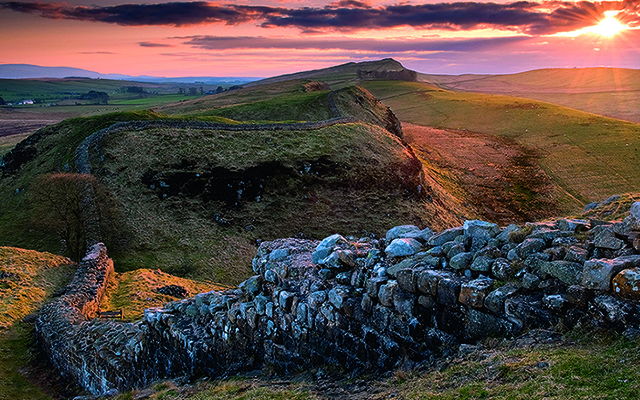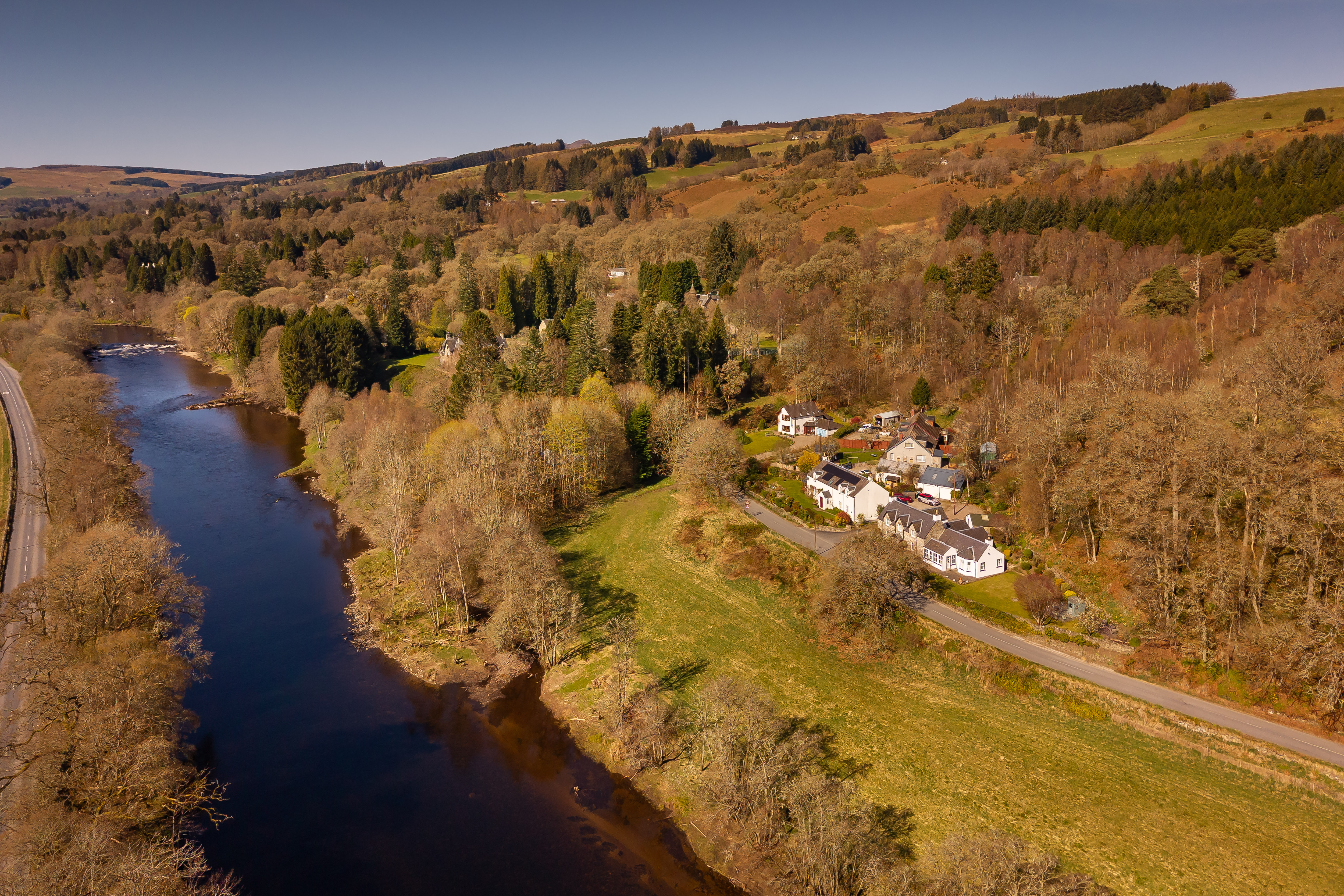Journey to Britannia
Ross Leckie finds much to entertain in this travelogue of a 2nd-century journey from Rome to Hadrian's Wall.


Journey to Britannia by Bronwen Riley (Head of Zeus, £25 *£22)
Homer’s Odyssey was the first of a kind. From Xenophon’s Anabasis to Arrian’s account of the journey of Alexander the Great, great books about journeys have what the racing world would regard as form. Making a science of a Greek art, the methodical Romans produced many an itinerarium, a list of cities, villages and so on that one would pass through on a given journey. Julius Caesar and Mark Anthony, for example, commissioned, in 44bc, the first known itinerary of all the Roman roads then built. Twenty-five years later, they would still have been waiting had they not been dead. Twenty-six years later, the result was carved on stone and set up outside the Pantheon.
For this itinerary, Bronwen Riley draws on a rich tradition, an antecedent of subjective travel writing, and she follows a paradigm that an ancient Roman would recognise. Her chronological point of departure is, very sensibly, 130ad. By that year, under the cerebral and out-standingly competent emperor Hadrian, the main towns and cities of Britannia, and the roads to and from them, were well formed.
Little was to change under successive emperors until, eventually and from about 400ad, Roman Britain fell into slow decay. Hadrian’s Wall, ordered to be built by Hadrian himself when he visited Britain in 122ad, was under way, marking a northern and western limit to the vast Roman imperium.
The second reason that Miss Riley chooses 130ad is typical of the ineluctable, if often unjust, apportionments of history. It just so happens that we have, for that year, the name of the man app-ointed to govern the province of Britain: Sextus Julius Severus, who served until 133ad.
Thus Miss Riley has a genre, a year, a traveller and a journey to hang her story on. What does she make of it all? About as much as anyone could hope for, even though her decisions entail the omission of such places as St Albans. (Although the town is important in the earlier and later Roman period, its 2nd-century record is strangely silent.)
She begins where all roads lead, in Rome, and asks us to imagine with her the journey to the Britain of Julius Severus, as he sets sail from Rome’s port of Ostia. We have the coasts and ports of Gaul and Hispania before, at last, Severus crosses the Channel and lands at Rutupiae (Richborough, just south of the Isle of Thanet. Dover, Roman Dubris, was yet to become the main port and naval base of Roman Britain).
Sign up for the Country Life Newsletter
Exquisite houses, the beauty of Nature, and how to get the most from your life, straight to your inbox.
From there, Miss Riley takes Severus and us on a very probable, clockwise progress right round his province, ending at Wallsend (Segedunum), the eastern end of Hadrian’s Wall. There are many felicities along the way. Her extensive and intimate knowledge of her subject is all the better for being lightly worn. She notes, for example, the probable absence of any trained fire-fighters in Roman London: the pax Romana distrusted groups that could become political.
Some things have not changed. ‘Curse tablets are written all over the empire, but no other province has quite such an obsession as Britannia with cursing people over theft and property rights.’ Other British idiosyncracies are more quaint.
Miss Riley notes that, in Calleva (Silchester), archaeological discoveries have shown that the inhabitants ‘are very attached to their distinctive personal grooming sets, of a type found only in Britannia, which include scoops for cleaning out ears’.
Readers who enjoy the rich past that informs our present will find much to treasure here. Miss Riley manages to bring multi-faceted, polyglot and multi-cultural Roman Britain to vibrant life. With its excellent maps, notes and index, this is a book for specialists and generalists alike.
As series editor of English Heritage’s ‘Red Guides’, the author has overseen several guides to Roman sites in Britain. She has learned from their expert authors and yet has made something that is sui generis, quite its own.
* Buy Journey to Britannia in the Country Life Bookshop
To order any of the books reviewed or any other book in print, at discount prices* and with free p&p to UK addresses, telephone the Country Life Bookshop on 0843 060 0023 or visit www.countrylife.co.uk/bookshop. Or send a cheque/postal order to the Country Life Bookshop, PO Box 60, Helston TR13 0TP. For overseas readers, telephone 01326 569444 or email sales@sparkledirect.co.uk * See individual reviews for CL Bookshop price.
Country Life is unlike any other magazine: the only glossy weekly on the newsstand and the only magazine that has been guest-edited by HRH The King not once, but twice. It is a celebration of modern rural life and all its diverse joys and pleasures — that was first published in Queen Victoria's Diamond Jubilee year. Our eclectic mixture of witty and informative content — from the most up-to-date property news and commentary and a coveted glimpse inside some of the UK's best houses and gardens, to gardening, the arts and interior design, written by experts in their field — still cannot be found in print or online, anywhere else.
-
 Vertigo at Victoria Falls, a sunset surrounded by lions and swimming in the Nile: A journey from Cape Town to Cairo
Vertigo at Victoria Falls, a sunset surrounded by lions and swimming in the Nile: A journey from Cape Town to CairoWhy do we travel and who inspires us to do so? Chris Wallace went in search of answers on his own epic journey the length of Africa.
By Christopher Wallace
-
 A gorgeous Scottish cottage with contemporary interiors on the bonny banks of the River Tay
A gorgeous Scottish cottage with contemporary interiors on the bonny banks of the River TayCarnliath on the edge of Strathtay is a delightful family home set in sensational scenery.
By James Fisher